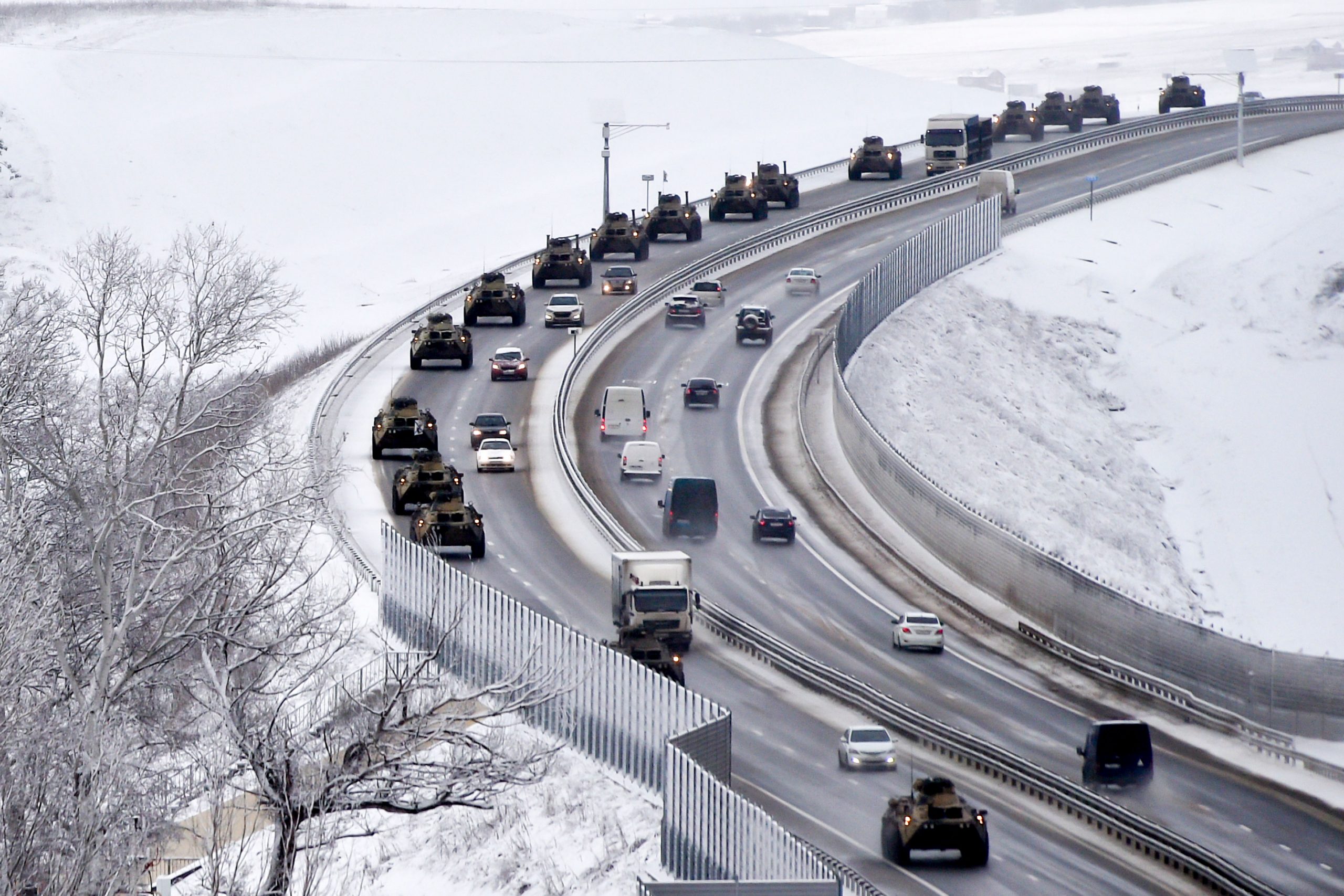Russia maintained a tough posture amid the tensions over its troop buildup near Ukraine, with a top diplomat warning Wednesday that Moscow will accept nothing less but “watertight” U.S. guarantees precluding NATO’s expansion to Ukraine.
Deputy Foreign Minister Sergei Ryabkov, who led the Russian delegation at the security talks with the U.S. in Geneva last week, reaffirmed that Moscow has no intentions of invading Ukraine as the West fears, but said that receiving Western security guarantees is the categoric imperative for Moscow.
Also read: UK’s Boris Johnson faces Parliament as ouster bid gathers steam
The talks in Geneva and a related NATO-Russia meeting in Brussels last week were held as Russia has amassed an estimated 100,000 troops near Ukraine in what the West fears might herald an invasion.
In a move that further beefs up forces near Ukraine, Russia has sent an unspecified number of troops from the country’s far east to its ally Belarus, which shares a border with Ukraine, for major war games next month. Ukrainian officials have said that Moscow could use Belarusian territory to launch a potential multi-pronged invasion.
Also read: Pfizer chief Albert Bourla given Genesis Prize for COVID vaccine development
The Russian Defense Ministry said on Wednesday that some of its troops already have arrived in Belarus for the Allied Resolve 2022 drills that will run through Feb. 20. It said the exercise will be held at five firing ranges and other areas in Belarus and involve four Belarusian air bases.
Amid the soaring tensions, U.S. Secretary of State Antony Blinken visited Ukraine on Wednesday to reassure it of Western support in the face of what he called “relentless” Russian aggression while French President Emmanuel Macron urged the European Union to quickly draw up a new security plan containing proposals to help ease tensions with Russia.
Also read: Beijing residents disappointed Olympics will be closed event
German Chancellor Olaf Scholz said Wednesday it’s too early to tell whether talks could defuse the crisis, adding that “after years of rising tensions, staying silent is not a sensible option.”
“The Russian side is aware of our determination,” Scholz said in a speech to the World Economic Forum. “I hope they also realize that the gains of cooperation outweigh the price of further confrontation.”
Also read: US Secretary of State Antony Blinken arrives in Ukraine to discuss Russian invasion threat
Russia has denied that it intends to attack its neighbor but demanded guarantees from the West that NATO will not expand to Ukraine or other former Soviet nations or place its troops and weapons there. It also has urged NATO to roll back the deployments of its troops and weapons to Central and Eastern European nations that have joined the alliance after the end of the Cold War.
Washington and its allies firmly rejected Moscow’s demands but kept the door open to possible further talks on arms control and confidence-building measures to reduce the potential for hostilities.
Also read: Japan widens COVID curbs, including in Tokyo, as cases surge
Ryabkov insisted, however, that there can’t be any meaningful talks on those issues if the West doesn’t heed the main Russian requests for the non-expansion of NATO.
He warned that the Russian demands contained in draft agreements with the U.S. and NATO “constitute a package, and we’re not prepared to divide it into different parts, to start processing some of those at the expense of standing idle on others.”
Also read: Thousands receive incomplete dose of COVID vaccine in California: Report
The Russian diplomat said Ukraine’s increasingly close ties with NATO allies pose a major security challenge to Russia.







